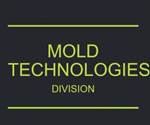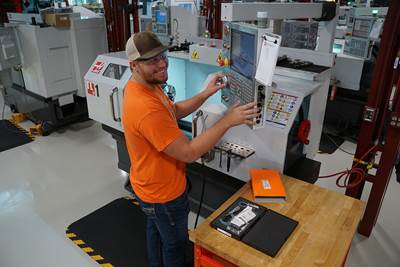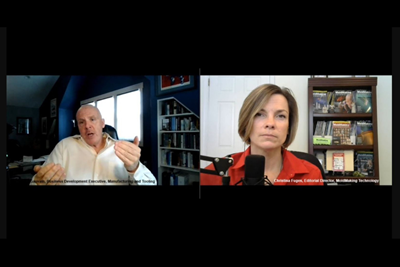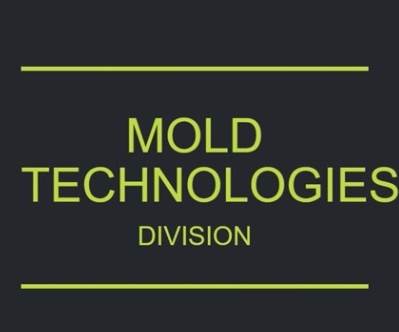
Government or other agency grants are a source of money available to large and small mold builders. Photo Credit, all images: Getty Images
Okay, so it’s not free money. As several economists have said, “There is no free lunch.” Even government stimulus checks ultimately are not free! However, a source of money, available to large and small mold builders alike, is the next best thing to free money, and that is government or other agency grants.
The Grant Groundwork
Grants are nice in that, unlike loans, they do not have to be paid back. But, of course, certain milestones usually need to be met to satisfy the grant requirements. In addition, a fair amount of corporate effort must often be exerted to apply for a grant in the first place. It should also be noted that grants are not automatically awarded to every company that applies. Instead, they are typically awarded competitively, even when there are several awards.
Grants can come from all levels of government and private or semi-private organizations. Each is trying to meet some perceived need that would not otherwise be met without some fiscal stimulus. At the same time, the grant providers often have specific financial and/or other requirements that must be met.
For example, two years ago, in response to the increased manufacturing capacity and modernizations needed to meet the COVID-19 pandemic, the state of Indiana created a Manufacturing Readiness Grant program that required a 50% cost-match along with other manufacturing-related stipulations. It was intended to stimulate manufacturing companies of all kinds within the state to invest in more modern manufacturing technologies and equipment to be better prepared to meet the next pandemic. Several of those grants went to injection mold builders and associated component manufacturers within the state. Those companies awarded the grants were then able to invest in newer, more updated equipment and technologies, such as computer systems, additive manufacturing (AM) equipment and machine tools, which they might not have otherwise been able to afford, at least not in the near future.
It’s easy for the solicitations to come and go without noticing unless you actively seek such information on a regular, ongoing basis.
Consider All Your Grant Options
So, the question becomes, “How does a mold builder or associated supplier go about obtaining grant money?” First, remember that grants can come from all levels of government and other outside organizations. So, the initial order of business is to research all the various avenues of potential grants.
For federal government opportunities, realize that all federal grants, as well as upcoming contracts and other federal purchase instruments, must be posted in a product called FedBizOpps, (which may be in the process of once again changing its designation). The FedBizOpps is segmented by agency and is quite extensive. The only problem with using it as your primary source of finding grants or other contracts is the adage, “Once you see it in the FedBizOpps, you are too late in the process to compete for an award.”
However, when you search for the FedBizOpps online, you will likely come across the U.S. Grants Applications Organization. It explicitly addresses federal grants of all types, from business to personal. I have not personally signed up for this website to date, so I urge caution, but it will very likely prove worthwhile for those seeking federal grants. Remember, grants can come from all sorts of federal agencies, from NIST (National Institute for Science and Technology) to NASA, to the Department of Defense (DOD) and beyond.
Follow the Rules, Think Locally

Grants can come from all levels of government and other outside organizations. So, the initial order of business is to research all the various avenues of potential grants.
I caution you that grants and contracts at the federal level are best left for those who engage the federal agencies regularly and are often the driver of such solicitations. However, if you persist in pursuing a federal-level grant, remember that it is imperative that when responding to those solicitations, you follow the federal rules and protocols explicitly!
If you think following the rules is not necessary, ask the Russian airplane manufacturer who bid on the new U.S. Air Force tanker a few years ago. They arrived at the gate at Wright-Patterson AFB on the date specified in the solicitation before the time specified. However, they had not arranged for visitor passes to deliver the proposal on base to the specified contracting office. As a result, by the time they obtained visitor passes and delivered their proposal to the contracting office, they were past the time specified and their proposal was summarily not allowed to be submitted.
Usually, your state government is a more amenable level of government to consider. Many states have state-sponsored agencies that promote industry within the state. For example, Indiana has a group called Conexus that is established for just such a purpose and has member manufacturing and other company members from across the state. Your state likely has a similar advocacy group. Query your local state representative regarding any potential or upcoming state grants that would be pertinent to your business.
Also, states often have local economic development agencies or similar state-sponsored local agencies that should provide insight into upcoming grant opportunities from the state or local government entities.
At the same time, note that state and local government agencies and semi-private organizations do not necessarily have a requirement, like the federal government does, to pre-publish upcoming grant solicitations. So, it is easy for the solicitations to come and go without noticing unless you actively seek such information on a regular, ongoing basis.
Are you engaging your state legislator or state industry associations to influence pending or upcoming legislation to encourage state or local grants?
Look into Private Sources
Finally, there are private associations that sometimes provide grants. For example, Cincinnati, Ohio-based Rumpke received a $510,000 grant from The Recycling Partnership’s Polypropylene (PP) Recycling Coalition this past year. Plus, they are expecting a second grant this year worth $77,500. In addition, the Coalition has other grants available “designed to encourage Material Recovery Facilities [MRFs] to increase recovery of PP, which can be used in a wide range of products.” According to The Recycling Partnership, Falls Church, Virginia, grant funding varies by MRF, depending on the needs and opportunities of each project.
Plastics recycling is currently fertile ground for obtaining grants and other types of financing. For example, the U.S. Plastics Pact was recently launched under the auspices of the Ellen MacArthur Foundation’s global Plastics Pact network led by both the aforementioned Recycling Partnership and the World Wildlife Fund. They have recently announced its roadmap to 2025, supposedly in “close alignment with the U.S. Plastics Pact roadmap.”
To date, about 10 companies have supposedly received grants from The Recycling Partnership. According to the Recycling Partnership, grants range from a few hundred thousand dollars to multiple millions of dollars depending on the number of pieces of new equipment purchases to be made or retrofit modernizations of existing equipment. In addition to equipment purchases, grants are for the education of personnel and management improvements.
Recently, Maine and Oregon passed legislation to encourage plastic waste reduction via materials reuse. The new laws will tax certain producers and, in turn, are supposed to spend that money to mitigate the plastics waste problems with grants to local municipalities. Those municipalities, in some cases, may issue sub-grants to local companies that will make investments to help mitigate the waste disposal problems.

Once you have identified a grant, be careful how you respond to the solicitation. State agencies and local governments and groups tend to be much more lenient in their rules than federal agencies.
Other states are looking at similar legislation. What about your state? Are you engaging your state legislator or state industry associations (such as the Conexus organization in Indiana) to influence pending or upcoming legislation to encourage state or local grants?
Note that Congress recently passed the “Break Free from Plastic Pollution Act” that lays out national Extended Producer Responsibility (EPR) guidelines that include the creation of incentives (i.e., grants and other instruments) “for the development of environmentally friendly products.”
A good way for moldmakers to create grants is to work with other companies in your local area or state to find common ground for a grant and then solicit either a local funding source or a state representative to find money to fund your group’s grant request. Another way is to work with local or state manufacturing or workforce advocacy groups to create specific types of grants beneficial to your company.
Federal agencies, as well as private funding groups, are generally most interested in technology advancement or implementation, while state and local agencies are usually first and foremost interested in how many jobs the grant will create, which is what helps get politicians re-elected.
Another way to incite grants is to work with a local university or other schools to promote a state-sponsored grant program. For example, suggest something like the federal STTR (Small Business Technology Transfer) Program whereby private industry is provided contracts, in this case, to work with university research programs to create and/or transfer advanced technology from the university laboratory to industry. Also, state-sponsored programs often will underwrite the hiring of co-op students from universities or even high schools or community colleges, particularly within manufacturing.
A good way for moldmakers to create grants is to work with other companies in your local area or state to find common ground for a grant and then solicit either a local funding source or a state representative to find money to fund your group’s grant request.
Perfect Your Proposal
Once you have identified a grant, be careful how you respond to the solicitation. State agencies and local governments and groups tend to be much more lenient in their rules than federal agencies. That does not mean you can flaunt their rules, but you can generally work with them more interactively to meet their requirements.
Still, it is essential that your proposal team determine the drivers of importance to the soliciting agency and fully reflect those in your proposal within the specified limits (e.g., page limits, etc.) The less you had to do with creating the grant solicitation, the more critical it is for you to find out how to respond to the requesting agency’s solicitation properly.
Writing a responsive proposal, of course, is a special and unique art form unto itself. So, don’t be discouraged if you do not win an award the first or second time you submit a proposal. Consider yourself fortunate, as well as skillful, if you do win the first time. In either case, learn from it and determine how to write award-winning proposals in the future.
Related Content
Top 10 Topics to Cover During an ISO 9001 Manufacturing Audit
Take a look at this practical hands-on approach to conducting a quality audit.
Read MoreThe Role of Social Media in Manufacturing
Charles Daniels CFO of Wepco Plastics shares insights on the role of social media in manufacturing, how to improve the “business” side of a small mold shop and continually developing culture.
Read MoreMaking Quick and Easy Kaizen Work for Your Shop
Within each person is unlimited creative potential to improve shop operations.
Read MoreDynamic Tool Corporation – Creating the Team to Move Moldmaking Into the Future
For 40+ years, Dynamic Tool Corp. has offered precision tooling, emphasizing education, mentoring and innovation. The company is committed to excellence, integrity, safety and customer service, as well as inspiring growth and quality in manufacturing.
Read MoreRead Next
Midwestern Advanced Manufacturing Design Technology Program Presents Unlimited Career Possibilities
Advanced Manufacturing Design Technology program at Central Community College offers new facility expansion and 100 years of instructor experience to mentor students from drafting, manual machines and CNC to part, mold and die design and advanced machining.
Read MoreICYMI--MMT Chats: The 12 Sins of Non-Disclosure Agreements
Today’s MMT Chats guest is Mark Gauvain, a manufacturing and tooling business development executive (and one of MMT’s Editorial Advisory Board members) with some insight to share on a topic I’ve been asked about recently … NDAs. This episode is brought to you by ISCAR with New Ideas for Machining Intelligently.
Read MoreCalling Vocational Technical Programs Looking for Financial Support
The Mold Technologies Division of the Society of Plastics Engineers is looking for qualified vocational technical programs within high school or college settings that are interested in applying for annual grants to support an advanced manufacturing program with a focus on plastics.
Read More













.jpg;maxWidth=300;quality=90)








